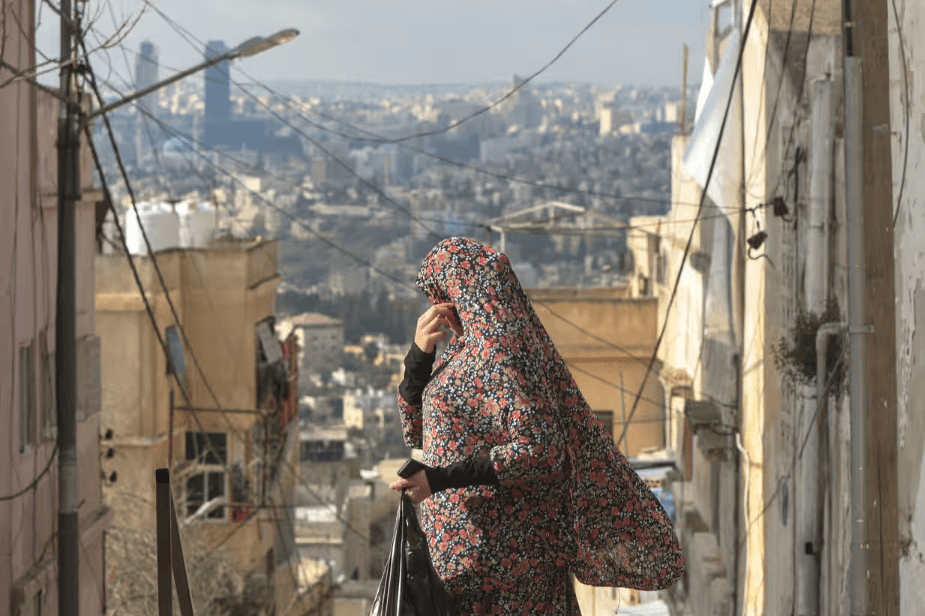Middle Eastern women battle regulations that keep them confined to their homes, chanting “I am a prisoner.”

Aya* is prohibited from leaving her house in Amman, Jordan, despite being close to 30. She lacks the legal authority to choose where to live, work, or attend school, and she is unable to join her pals for lunch.
The Middle East and north Africa, where nations like Jordan, Iran, and Saudi Arabia still have laws forcing women to either “obey” their husbands, live with them, or get their permission before leaving the marital home, working, or traveling, are typical places where women experience regulations like those in Aya’s narrative.
“I am a prisoner at home,” Aya claims. “If I leave the house without telling my family, they’ll put me in my room and beat me so severely that I’ll be in excruciating agony for months. I’m in danger of dying. Numerous females resemble me.
Despite claims to the contrary, most nations in the area still have laws against married women traveling abroad and obtaining passports without parental consent.
“It’s important to understand that violence against women doesn’t just include physical violence; it also includes restrictions on movement,” says Rothna Begum, a senior researcher at Human Rights Watch, which recently released a report on the subject with a focus on the Middle East and North Africa (Mena) region.
You have a range of regulated ladies; some have a curfew, but other women aren’t even allowed to see their pals in a café. In that sense, you are unable to have a social life. Women discuss how despair is exacerbated by their lack of agency; some feel so in control that they try suicide.
In fifteen of the nations in the area, regulations still exist that allow women to be penalized for working or traveling without their husbands’ permission or to lose their entitlement to maintenance payments from their spouses if they leave the marital home. Since certain religious courts might have authority over marriage and divorce and deny women spousal support, HRW decided to include Israel in the study.
In addition, if male guardians report that women are missing from their homes, they may be arrested, jailed, or made to return in Jordan, Kuwait, Qatar, and Saudi Arabia.
Because her father won’t let her leave the house, Lina*, 24, works from home in Amman. Lina earns $2,400 more per month than anybody else in her family, but because she is unable to go out, she is unsure of how to spend it. Lina recently declined a promotion at work because she didn’t feel qualified.






